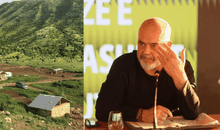
 Flash News
Flash News
Ceno Klosi with over 800 stolen votes, Balluku finds the reason is the tiredness of the counters
"Fast & Furious" in the former Block, police chase an Audi Q8, 4 cars collide
Car hits two tourists on a motorcycle in Fushe Arrëz, one of them dies
Serious accident in Thumanë, one dead, 3 injured
Durrës Court suspends the director of Pre-University Education from duty

Communication is the leitmotif that appears most often in the Albanian pro-government media, as a concern of the government. Not many days pass without it being mentioned at least once that the "order of the prime minister" for the ministers, or of the "chairman" for the deputies, is for the latter to communicate more "with the citizens".
For a government that apparently has everything in its pocket, both conventional and social media, and even, occasionally, even the opposition itself, the demand to listen to them expresses a new kind of desperation. That of not having listeners.
By Gjergj Erebara
it happened some time ago, before Prime Minister Edi Rama delivered a speech that lasted for over two hours and that, in the version whitewashed by his office, counted over 12,000 words, that Rama, before delivering the speech, informed his followers on Facebook and suggested they give it a listen as he expressed confidence that listeners would not regret the time spent.
The speech was an extremely confused scheme to declare that the prime minister is "not to blame" for the ubiquitous corruption around him, as well as a desperate attempt to argue to Albanians that his governance is not simple and only a corrupt activity.
Between the lines, he declared that he refuses to take responsibility for corruption and is not resigning, not because of the hatred of power as a disease, but for the "good of the nation".
According to him, Albania cannot survive a political crisis caused by his resignation, so he can do nothing but continue to govern. Told in a corrupt language, in the sense of unnecessary digressions and turns of phrase in long sentences, it takes an attentive reader a lot of concentration and several hours to make any sense out of the speech.
As for the general public, they have the opportunity to follow the main points broadcast by the government propaganda industry, if they are interested. It's just that it's not clear that the twelve thousand words he uttered to make these arguments had an audience or not.
"Communication" was also the word most recently used in Rama's meetings with the Socialist Party or government structures because, as Rama said on one occasion, his party will find ways to renew itself.
Rama's emphasis on communication may seem surprising, if you note that the vast majority of the so-called conventional media serve the socialists with complete loyalty, while the owners of this vast portion, and we are talking about over ë0% of the entire television market , have become very rich thanks to the concession contracts or statuses of Rama's strategic investors.
Dhe është gjithashtu çuditëse nëse vëren se edhe në të ashtuquajturën media sociale, qeveria ka kontroll thuajse të plotë pasi përmbajtja e saj është e mbushur në masë nga programet televizive soft-porno të medias proqeveritare si dhe nga “lajmet” e prodhuara nga qeveria dhe të shpërndara, ose drejtpërsëdrejti nga qeveria, ose përmes medias proqeveritare.
Me një fjalë, ndërsa qeveria flet me bollëk dhe mjetet e transmetimit i ka në dispozicion të plotë me një të shtypur të butonit, në pamje të parë nuk kuptohet se çfarë mund të arrijë më shumë në këtë drejtim.
Në fakt, theksimi nga ana e Ramës, i komunikimit me popullin si diçka shumë e rëndësishme, nuk ka pse të çudisë kënd nëse marrim parasysh kontekstin në të cilin gjendemi.
Përballë një opozite të pareformuar, një qeveri e kapur në mënyrë të përsëritur duke shpërdoruar paratë e taksapaguesve, apo në lidhje të ngushta me disa nga grupet kriminale më gjakatare të vendit, Rama nuk gjendet më sot me një problem përballë opozitës, por gjendet me një problem përballë popullit si i tëri. Dhe është një problem shumë i madh që ai ka.
Të kesh pushtet është njëra gjë dhe të kesh autoritet është krejt tjetër gjë. Ndërsa Rama dukshëm i ka të gjitha pushtetet, kontrollon qeverinë dhe e ka parlamentin një zyrë noteriale të vendimeve të tij, ku opozita, sa herë që i nevojitet, voton kërkesat e tij, fjala vjen, për amnisti për zyrtarët e korruptuar apo për reformë zgjedhore kundër demokracisë, Rama e ka autoritetin zero.
Dhe është ky problemi i autoritetit, i cili është jashtëzakonisht shumë ndryshe nga pushteti, i cili është një cilësi politike që mund ta zbythë pushtetin në çdo kohë, ajo që shqetëson Ramën, problem të cilin, ai dukshëm mendon se mund ta zgjidhë me “më shumë komunikim”.
Problemi që ka qeveria sot është që, sfondi i skandaleve të panumërta korruptive, nga Lefter Koka e Arben Ahmetaj, te Ilir Beqaj e drejtorët e bashkisë, pa përmendur listën e gjatë të kryebashkiakëve e të zyrtarëve të tjerë, që të gjithë të dyshuar apo të dënuar, zhvillohet para një sfondi të realitetit praktik: Në spital, ndërsa njerëzit e sëmurë me kancer janë duke vdekur, në mënyrë kronike nuk ka ilaçe.
Rrugët e vendit janë bërë një katrahurë me gropa. Era e qelbur e ujërave të zeza që derdhen drejtpërsëdrejti në det apo në lumenj ndjehet gjithkund dhe plehrat, në kuptimin e drejtpërdrejtë të fjalës, po përmbysin shumicën e qyteteve kryesore të vendit.
While the state of the country's public services is what it is, with water pipes that do not bring water but that have left 200 million euros in unpaid energy bills, his ministers and he submit every year to a state office called the Inspectorate of the Declaration of Assets, statements which, under the other background of the vetting process, seem ridiculous. Public officials, who have spent their whole lives doing nothing but state employees, today turn out to be millionaires with euros, while at party congresses they address each other with the word: Friend, friend! This, in fact, must be the tip of the iceberg because the millions captured by SPAK and the luxury villas and vacations in the few cases of corruption investigated are not part of the ministers' official self-declarations.
All this will by no means mean that Edi Rama and only Rama, (because he has no one else who is at the level of equal to be able to offer ideas for governance), does not have new and innovative ideas to lead him the country forward, or, as he promises, to join the European Union.
His problem is that, in the face of countless corruption scandals, the extraordinary wealth of the government and the regular lack of medicines at the oncologist, the citizens can quite rightly multiply by zero all ideas for the development of the country, for the governing foresight , for integrations and others like these.
Indeed, the country has been left without opposition. But this, incidentally, has also created a government which has no people to talk to. There are no people left in the country to listen to him. Rama seems to be talking to himself.
/BIRN
Latest news





Lufta në Gaza/ Pse Netanyahu do vetëm një armëpushim 60-ditor, jo të përhershëm?
2025-07-02 21:56:08
US suspends some military aid to Ukraine
2025-07-02 21:40:55



Methadone shortage, users return to heroin: We steal to buy it
2025-07-02 20:57:35
Government enters oil market, Rama: New price for consumers
2025-07-02 20:43:30
WHO calls for 50% price hike for tobacco, alcohol and sugary drinks
2025-07-02 20:41:53







Israel agrees to 60-day ceasefire in Gaza, but many unanswered questions remain
2025-07-02 18:35:27
The weather in Germany is going "crazy", temperatures reach 40°C
2025-07-02 18:22:21

"Fast & Furious" in the former Block, police chase an Audi Q8, 4 cars collide
2025-07-02 17:59:25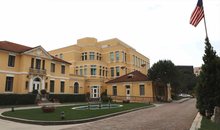
"Birth on a tourist visa? US Embassy warns Albanians: This is prohibited!"
2025-07-02 17:48:16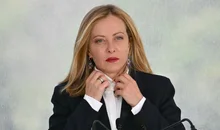
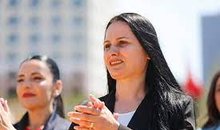

BIRN: Fier recount reveals vote trafficking within open political party lists
2025-07-02 16:57:19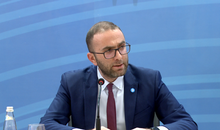

CEO and former director of 'Bankers Petroleum' arrested in Fier
2025-07-02 16:40:42
Car hits two tourists on a motorcycle in Fushe Arrëz, one of them dies
2025-07-02 16:33:23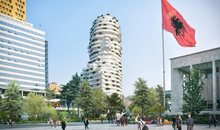



Fire at the Elbasan Incinerator Landfill, Prosecution Launches Investigations
2025-07-02 15:34:54
What you need to know if you travel to a country with active volcanoes
2025-07-02 15:33:03

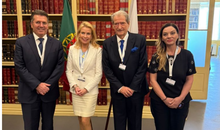

EU proposes 90% reduction in greenhouse gases by 2040
2025-07-02 14:50:23
Europe is burning from the heat / Italy and France are on maximum alert
2025-07-02 14:36:52
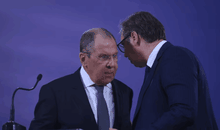
Moscow's contradictory statements: Is the friendship with Vučić breaking down?
2025-07-02 14:21:05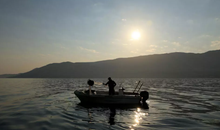
'I lost my battle': Sea warming is killing fishing in Albania
2025-07-02 14:08:35
Sekretet kimike që ndihmojnë në mbajtjen e mjaltit të freskët për kaq gjatë
2025-07-02 14:01:26
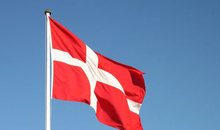
Denmark makes historic decision to make military service mandatory for women
2025-07-02 13:44:33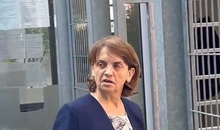
The appeal of the GJKKO leaves former judge Pajtime Fetahu in prison
2025-07-02 13:30:20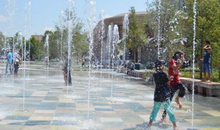
Productivity losses could reduce GDP by 1.3% as a result of extreme heat
2025-07-02 13:21:04
He abused his minor daughter, Zamir Meta is left in prison
2025-07-02 13:04:04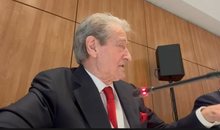

Waste burning in Elbasan, Alizoti: They are poisoning people and stealing money
2025-07-02 12:48:39
Civil disobedience continues in Serbia, dozens of people detained
2025-07-02 12:40:32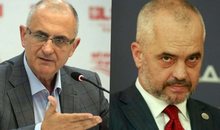
Rama's government was born under the sign of garbage and will end like this
2025-07-02 12:28:09
Water prices increase in the municipalities of the Elbasan region
2025-07-02 12:13:38
Civil disobedience continues in Serbia, what is happening in Belgrade?
2025-07-02 12:07:44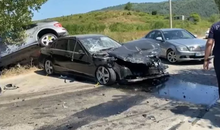
Serious accident in Thumanë, one dead, 3 injured
2025-07-02 11:54:42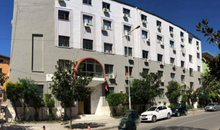
Durrës Court suspends the director of Pre-University Education from duty
2025-07-02 11:49:27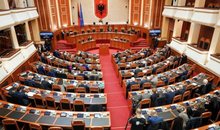
Plenary session on Thursday, what is expected to be discussed
2025-07-02 11:36:43
Europe is burning from heat waves/ What is the 'thermal dome' phenomenon?
2025-07-02 11:26:25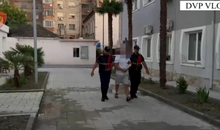
Wanted by Italy for murder, 45-year-old arrested in Vlora
2025-07-02 11:19:31
Fire situation, 28 fires reported in 24 hours, 2 still active
2025-07-02 11:13:20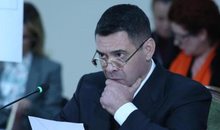
"Buka" file, preliminary hearing for Ahmetaj postponed to July 17
2025-07-02 11:03:30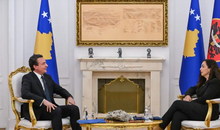
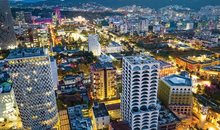

Baçi: Belinda Balluku and Ceno Klosi, the most dangerous "gangs" in Fier
2025-07-02 10:32:09
Zamir Meta, suspected of sexually abusing his daughter, arrives in court
2025-07-02 10:21:33
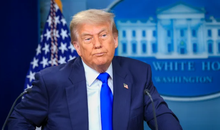
Trump: Israel has agreed to a 60-day ceasefire in Gaza
2025-07-02 10:01:55
Fire continues at Elbasan landfill
2025-07-02 09:51:13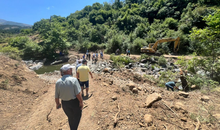

Dates to note during July, important events will occur
2025-07-02 09:31:45
The hearing for Jorgo Goro's claim is postponed
2025-07-02 09:24:19



Foreign exchange, the rate at which foreign currencies are sold and bought
2025-07-02 08:42:31

52% of pensioners did not receive full pension in 2024
2025-07-02 08:27:18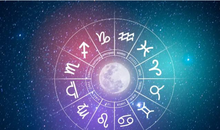
Horoscope, what do the stars have in store for you today?
2025-07-02 08:13:36
Hot weather, Wednesday brings high temperatures
2025-07-02 07:59:16
Morning Post/ In 2 lines: What mattered yesterday in Albania
2025-07-02 07:46:15
Heatwave sweeps across Europe, Spain and England record hottest June ever
2025-07-01 22:57:41






Golem and Qerret without water at the peak of the tourist season
2025-07-01 21:09:32

Euractiv: Italy-Albania migrant deal faces biggest legal challenge yet
2025-07-01 20:53:38
BIRN: Brataj and Fevziu victims of a 'deepfake' on Facebook
2025-07-01 20:44:00

Vlora by-pass, work delays and cost increases
2025-07-01 20:24:29



Milan are expected to give up on the transfer of Granit Xhaka
2025-07-01 19:41:25

